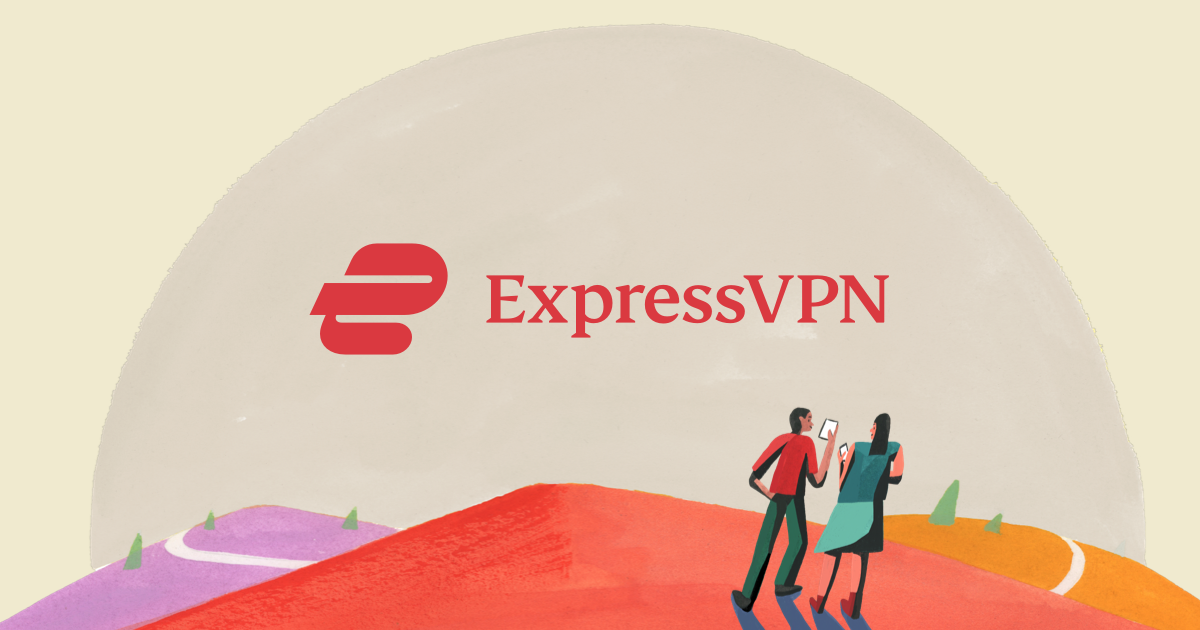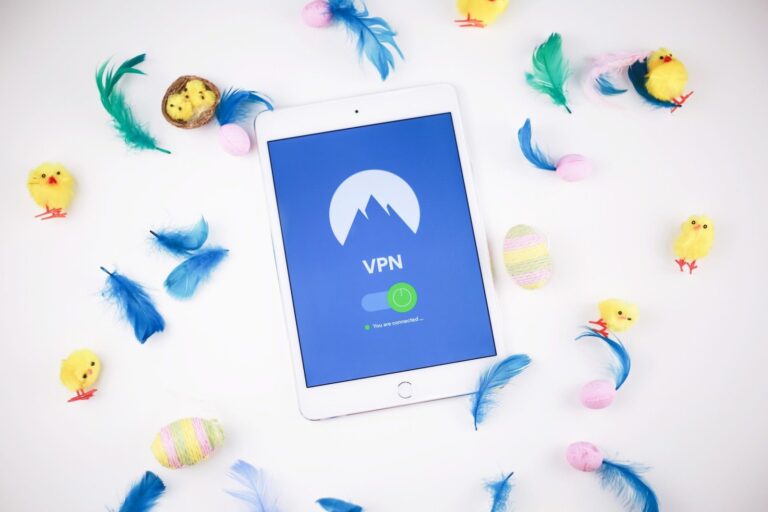A VPN service is a great way to keep your data and online activities safe. If you want to get the most out of this service, you need to be sure that your traffic is routed correctly and fast. One way to do this is through port forwarding. This process allows you to direct specific ports on your computer to a specific IP addresses.
What is port forwarding, and how does it work?
Port forwarding is a security feature that allows devices on the same network, such as personal computers, to be linked to different ports on a remote host computer. This allows the devices to access resources on the remote host computer through those specific ports. When using a VPN, port forwarding can help improve privacy and security by routing all of your traffic through the VPN tunnel.

NordVPN Special Deal
Get VPN protection from NordVPN, one of the most reliable VPN companies in the world, for just $3.99/month!
What is a Port in Networking?
A port is an endpoint of communication in an operating system. The ports have numbers from 0 to 65535 and used for common protocols such as TCP and UDP.
Port forwarding or port mapping is a technique used to allow external devices to connect to internal devices by forwarding traffic from one port to another.
You can use port forwarding to connect to a desktop computer or server that is only accessible from within the home network.
Port forwarding can also be used to connect to resources located on private networks when using a virtual private network (VPN).
What are the different types of port forwarding?
There are three types of port forwarding: local, remote, and dynamic port forwarding.
Local port forwarding sends traffic from a specific port on your computer to a specific port on another computer. This is useful if you want to access services on another computer from outside your network. For example, you could use local port forwarding to access your home media server from work.
Remote port forwarding transports traffic from a specific port on one computer to a specific port on another computer over the internet. This is useful if you wish to access services on another computer from outside your network, and that other computer is inaccessible from the internet.
Dynamic port forwarding is a process that allows you to create a secure connection between your computer and a remote server. This process allows you to access restricted websites and services from anywhere in the world.
Multiplayer gaming
One of the most popular uses for port forwarding is to improve multiplayer gaming. By opening specific ports, you can improve your gaming experience by reducing lag and improving communication with other players.
However, port forwarding can also have some negative effects on multiplayer gaming. In some cases, it can make it easier for hackers to gain access to your game server. Additionally, if not configured properly, port forwarding can actually cause more lag.
Overall, port forwarding can be a helpful tool for improving multiplayer gaming. However, it is important to be aware of the potential risks before you start using it.

The Best VPN Deal You Can Find Anywhere!
Get a VPN that lets you use an unlimited number of devices, offers amazing security features and has an unbeatable offer!
82% off + 2 Months Free
- Unlimited Devices
- Ad & malware blocker
- Cookie pop-up blocker
- Two-Factor Authentication
- 24/7 support
- $2.49/Month!
Remote Desktop Access
Port forwarding can be used to enable other types of remote access as well, such as Remote Desktop Protocol (RDP). RDP allows a user to connect to another computer over the Internet and control it as if they were sitting in front of it. This can be useful for accessing files or applications that are not available on the user’s local machine.
A VPN can also be used to enable remote access. A VPN creates an encrypted tunnel between the user’s computer and the VPN server.

How to set up port forwarding with a VPN
Port forwarding is a process used to direct traffic from one network port to another network port. This can be done on a device like a router, or on software like a virtual private network (VPN) service.
When you set up port forwarding on a VPN service, you are essentially telling the VPN to send all traffic destined for a specific port on your computer to the computer that is running the VPN service. This can be useful for accessing services that are only available on certain ports, or for bypassing firewalls that may be blocking traffic from specific ports.
Some VPN services have built-in tools for setting up port forwarding, but the exact process will vary depending on the service. Generally, you will need to create a new rule or modify an existing rule to forward traffic to a specific port.
Is port forwarding compatible with VPN?
VPNs and port forwarding are both useful technologies that can be used to improve your online experience. But what is the difference between these two things, and can they be used together?
VPNs (virtual private networks) allow you to browse the internet anonymously and securely by encrypting your data. Port forwarding, on the other hand, is a technique that can be used to improve your internet speed by opening up specific ports on your router.
So, can you use VPNs and port forwarding together? The answer is yes, but it is important to note that if you are using a VPN, you will likely not need to use port forwarding. This is because most VPNs will already route your traffic through the best possible path, including any open ports.

Why don’t many VPNs offer port forwarding?
Port forwarding can be useful for a variety of purposes, such as gaming or accessing specific services that are blocked in your country. However, not all VPNs offer port forwarding, and there are a few reasons why this is the case.
One reason is that port forwarding can be used to bypass firewalls and other security measures. This can pose a security risk to both the VPN provider and the user, as it can allow malicious actors to gain access to sensitive information. For this reason, many VPN providers choose not to offer port forwarding to their users.
Another reason is that port forwarding can be complex to set up and configure. This can be a hassle for both the user and the VPN provider, and it can lead to stability issues if not done correctly. For these reasons, many users select to use a VPN that does not offer port forwarding.

NordVPN Special Deal
Get VPN protection from NordVPN, one of the most reliable VPN companies in the world, for just $3.99/month!
✅ Possibly, the best Double VPN implementation.
✅ Over 5000 servers in 60 countries.
✅ VPN split tunneling support.
Port forwarding and torrenting
Torrenting is a popular method of sharing files over the internet. Unlike traditional file sharing, which relies on a central server, torrenting uses a peer-to-peer network. This means that files are shared directly between users, without the need for a central server.
To use torrenting, you must install a torrent client on your computer. Once the client is installed, you can download torrent files from the internet and add them to the client. The client will then connect to other computers in the network and begin downloading the files.
Port forwarding can be used to improve the speed of torrent downloads by allowing direct communication between the computer and other members of the network.

82% off VPN deal + 2 months FREE
Special Surfshark offer for our readers! Speedy servers, Rotating IP included, just $2.49 / month!
The best VPN with Port Forwarding in 2022
When choosing a VPN for port forwarding, it is important to consider the number of available ports, the security features of the VPN, and the price.
You can forward ports from your local network to a remote network using a virtual private network. This can be useful for gaming, streaming content, and more.
Here are three of the best VPNs with port forwarding in 2022:
ExpressVPN – ExpressVPN has over 3,000 servers in 94 countries and offers excellent security features. They offer 24/7 live chat support and allow up to five simultaneous connections.

VyprVPN – VyprVPN has over 1,000 servers in 21 countries and offers strong security features. They offer 24 7 live chat support and allow up to five simultaneous connections.
PrivateVPN – PrivateVPN offers an exceptional mix of security features, with over 1,000 servers in 49 countries.
Is Port Forwarding with a VPN safe?
Port forwarding is a process of re-directing network traffic from one port to another and can be done with a VPN, as it creates a secure tunnel for your data. By using a VPN, you can forward ports to internal devices on your network while keeping your data safe and secure.
This is perfect for gaming or accessing files on your home network while away from home.
However, it is important to note that not all VPNs are safe for port forwarding. In fact, some can actually leave users vulnerable to attacks, and it is essential for users to research the safety and efficacy of any VPN they are considering using before deciding.

Special VPN Deal
Get VPN protection from NordVPN, one of the most reliable VPN companies in the world, for just $3.99/month!
Do you need port forwarding?
When you set up a VPN, you’re essentially creating a secure tunnel between your device and the VPN server. All of your traffic is routed through this tunnel, which keeps your data safe and encrypted.
But what if you want to access devices on your home network from outside your home? For example, you might want to access your files or streaming content from another location. In this case, you require port forwarding.
Port forwarding allows traffic from outside the VPN to be directed to specific devices on your home network. This can be helpful for accessing devices that are behind a firewall or router.
Make sure that the VPN you’re considering offers port forwarding, or you may be disappointed.
What does Reddit say about Port Forwarding?
According to the advice from Reddit users, port forwarding is still necessary when using a VPN service.
One user pointed out that he found it difficult to access his home media server when he was abroad. He was able to resolve the problem by forwarding the relevant ports on his router.
Another user recommended port forwarding for those who wanted to use a VPN for gaming purposes. He stressed the importance of choosing a fast VPN service so that gamers would not experience any lag.
A final user noted that he had been having trouble streaming Netflix through his VPN service.
Recommended VPNs



FAQs about VPNs and port forwarding feature
Which should I use, VPN or port forwarding?
VPN and port forwarding are two different technologies that can be used to secure your internet traffic. VPNs create a secure tunnel between your computer and the internet, while port forwarding opens a specific port on your router so that traffic destined for that port is forwarded to your computer.
Which technology you should use depends on your needs. If you want to protect all of your traffic from prying eyes, then you should use a VPN. If you only need to access a specific service or website, then port forwarding may be a better option.
Can I use port forwarding with PrivateVPN?
PrivateVPN is a Sweden-based VPN provider that offers both a paid and free version of their service. One of the benefits of using a VPN is the ability to forward ports on your router. This can allow you to access devices or services on your home network from outside your home network.
Does NordVPN allow port forwarding?
Unfortunately, NordVPN does not allow port forwarding. They say: “We do not provide port forwarding, and it is not possible to use VPN on our service.”
Is port forwarding compatible with ExpressVPN?
ExpressVPN is a popular VPN service that many people use to protect their online privacy. Based on our research, we can confirm that ExpressVPN does not officially support port forwarding, but they give some tips on how to set up your VPN with port forwarding on your router.
How do I configure my router to open ports for VPN?
Configuring your router to allow VPN traffic is a fairly simple process. All you need is the IP address of the VPN server you wish to connect to, and the port number that the VPN server is using.
The first step is to open up your router’s configuration page. This can usually be done by typing the router’s IP address into a web browser. Once you have opened the configuration page, look for a section called “port forwarding.”
Next, enter the IP address of the VPN server and the port number it is using into the appropriate fields in the port forwarding section. Save your changes, and your router will now forward all traffic destined for that port to the VPN server.
Is port forwarding necessary for Torrenting?
Port forwarding is a technique that can be used to make your torrenting activity more anonymous and secure. When you enable port forwarding on your VPN, your torrent traffic will be sent through a separate channel than your regular internet traffic. This makes it more difficult for anyone to track your activity or identify what you are downloading.
While port forwarding is not necessary for all torrenting activities, it can be a valuable tool for those who want to keep their identity and data secure. If you are looking for an extra layer of security, consider using a VPN with port forwarding capabilities.
What port does NordVPN use?
NordVPN uses a variety of ports, including TCP port 443, UDP port 1194, and UDP port 53. This means that it can be used with most firewalls and routers.
Is a VPN good enough for Torrenting?
A VPN is a great way to keep your torrenting activities private. However, if you’re looking for complete anonymity, you may want to consider using a VPN with port forwarding. This will ensure that your IP address is not associated with your torrenting activities.
What ports need to be open for a VPN to work?
When you set up a Virtual Private Network (VPN), you are essentially creating a secure tunnel between your computer and a remote server. This secure tunnel can be used to encrypt all of your traffic, protecting your data from prying eyes. In order for the VPN to work properly, you will need to configure port forwarding on your router.
Which port(s) must be open for a VPN to work?
The ports that have to be forwarded depend on the type of VPN that you are using. If you are using a PPTP VPN, then you will need to forward port 1723 to the IP address of the VPN server. If you are using an L2TP VPN, then you will have to forward port 500 and port, 4500 to the IP address of the VPN server.
When using an OpenVPN VPN, then you will need to forward ports 1194 and 9001 to the IP address of the VPN server.
Is it safe to forward ports?
Port forwarding is a process that allows you to make ports on your router accessible from the internet. This can be useful if you want to access devices on your home network from outside your home. However, port forwarding can also be used to create a security vulnerability. If you are not careful, you may leave your devices open to attack.
One way to protect yourself is to use a virtual private network (VPN). A VPN creates an encrypted tunnel between your device and the VPN server. This prevents anyone from seeing your traffic or stealing your data. If you are using a public Wi-Fi network, a VPN is essential for keeping your data safe.
Does port forwarding open ports?
Many people believe that enabling port forwarding opens up the ports that are forwarded to the internet. However, this is not always the case. In some instances, port forwarding will only allow devices on your local network to communicate with each other. If you want to access a service that is blocked by a firewall, or make a server on your home network available from the internet, you will need to use a VPN service.
Is port forwarding good for gaming?
Gaming is probably the most popular reason to use port forwarding, and it can be very beneficial. When you game online, your computer is communicating with the game server. To accomplish this, it must send and receive data through ports that are open on the game server. If your computer’s ports are closed, then you won’t be able to connect to the game server, and you’ll have a bad gaming experience.
Port forwarding can help resolve this issue by opening up the appropriate ports on your router so that your computer can communicate with the game server.
Can port forwarding be configured on a mobile device?
If you want to set up port forwarding on your cellular device, you cannot do it with the default settings on either Android or iOS.
However, you may be in luck if you are using Android and you are willing to try a few apps that will allow you to do that. One of the more popular apps that allows you to do that is called FWD: port forwarder, and you can get to it by clicking on the link below.

Should I use TCP or UDP when forwarding a port?
There are a few things to consider when choosing between TCP and UDP for port forwarding. UDP is faster but less reliable, while TCP is more reliable but slower. Additionally, UDP can handle larger packets than TCP. If reliability is important, then TCP should be used; if speed is more important, UDP should be selected. Ultimately, the best choice depends on the specific application and network environment.
Conclusion
In conclusion, the combination between a VPN and port forwarding is essential for privacy, gaming, and security. It allows users to remain anonymous while gaming and keep their personal information safe when browsing the web. Additionally, it can be used to bypass firewalls and access restricted websites. A VPN service with port forwarding is a must-have for anyone looking for privacy and security online.












